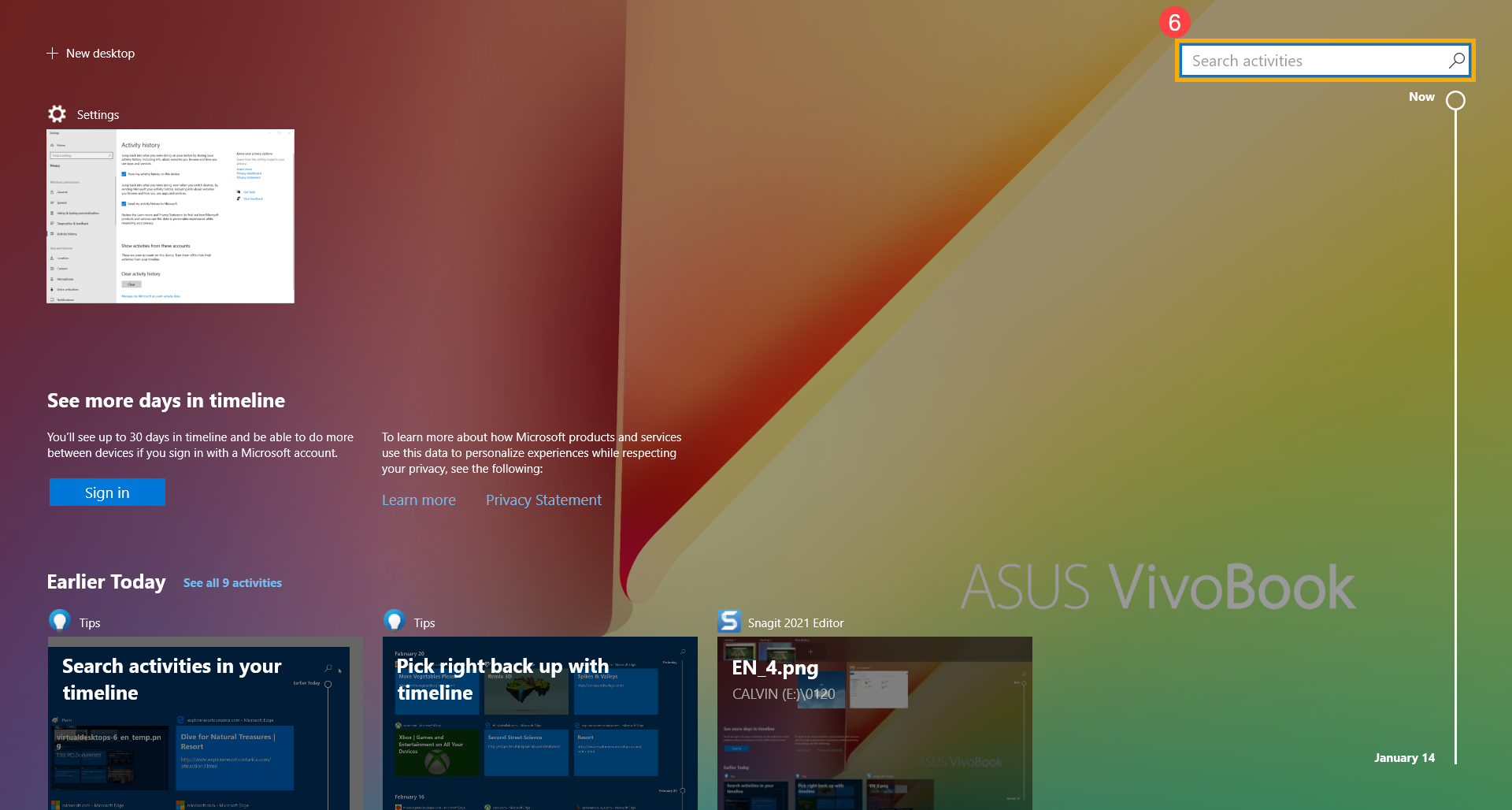Related Topics
[Windows 11/10] Virtual Desktop
Applicable Products: Notebook, Desktop, All-in-One PC, Gaming Handheld, MiniPC
The multitasking in Windows 11/10 allows you to create multiple virtual desktops via 'Task View' in Windows 11/10 and prevent the working efficiency decreased due to too many task windows. You can quickly switch to different workspaces you need for better multitasking. And, the apps and task windows will remain open and in the same orientation when you switch between different virtual desktops.
Please go to the corresponding instruction based on the current Windows operating system on your device:
Windows 11 operating system
To provide you more detailed instruction, you can also click ASUS Youtube video link below to know more about Windows Virtual Desktop.
ttps://www.youtube.com/watch?v=43LLcQhI6pU
Table of Contents:
Create a Virtual Desktop
- You can use the cursor to click the [Task View
 ] icon on the taskbar①, or press the Windows logo key
] icon on the taskbar①, or press the Windows logo key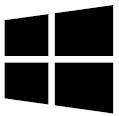 + tab key on the keyboard to run “Task View”.
+ tab key on the keyboard to run “Task View”. 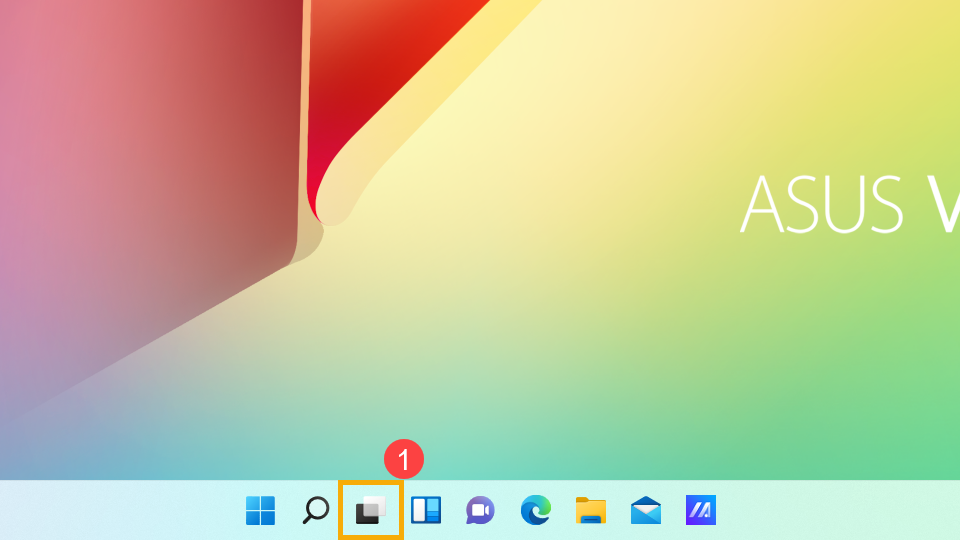
- Select [New desktop]② to create a new virtual desktop.
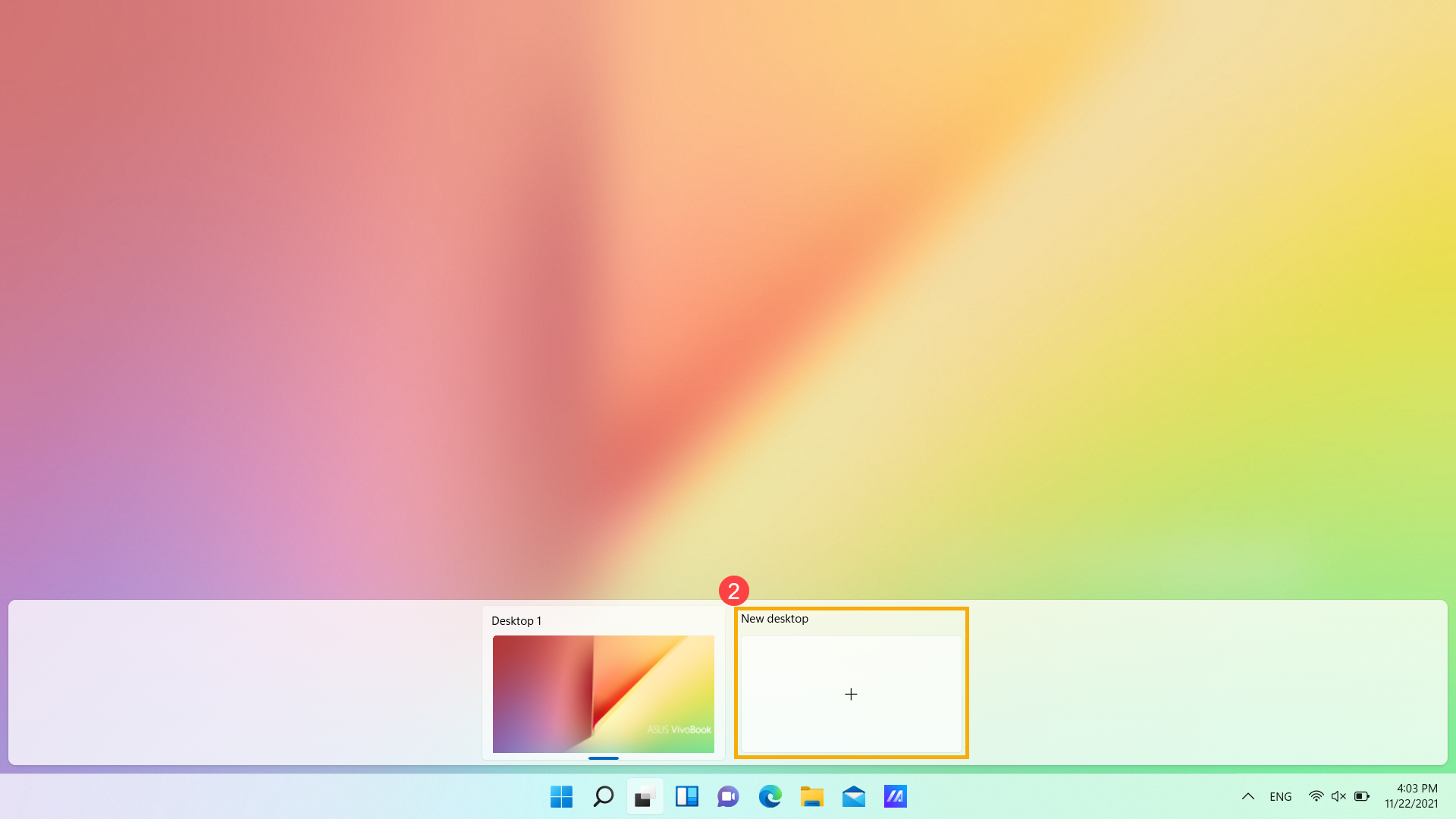
- You can open the apps you want to use on different desktops. If you need to switch between desktops, please select Task view again.
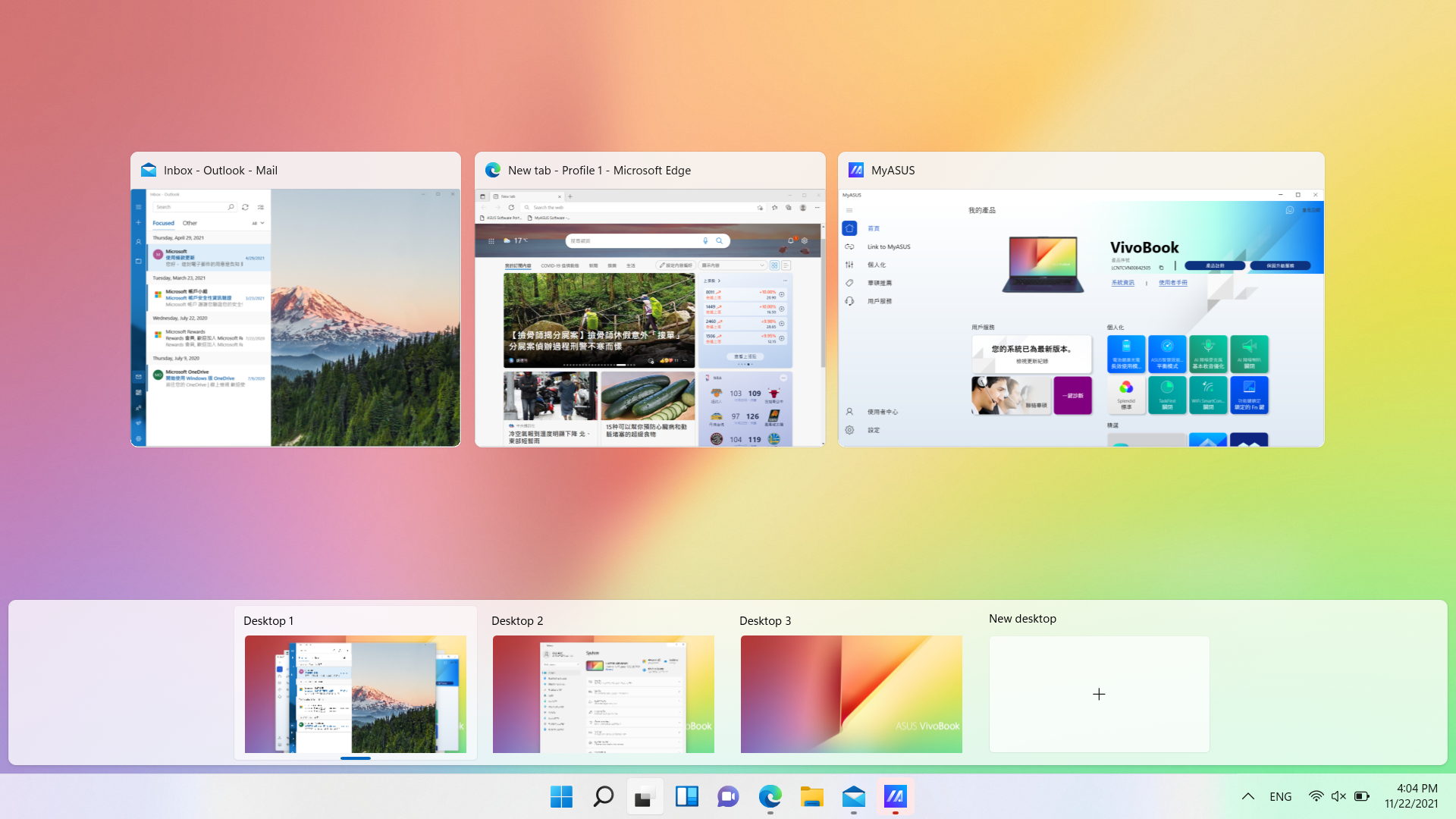
Customize Virtual Desktop
Rename
You can change the name to recognize easily for each virtual desktop.
- Please select [Task View]①, and right-click on the desktop you want to change②, then select [Rename]③.
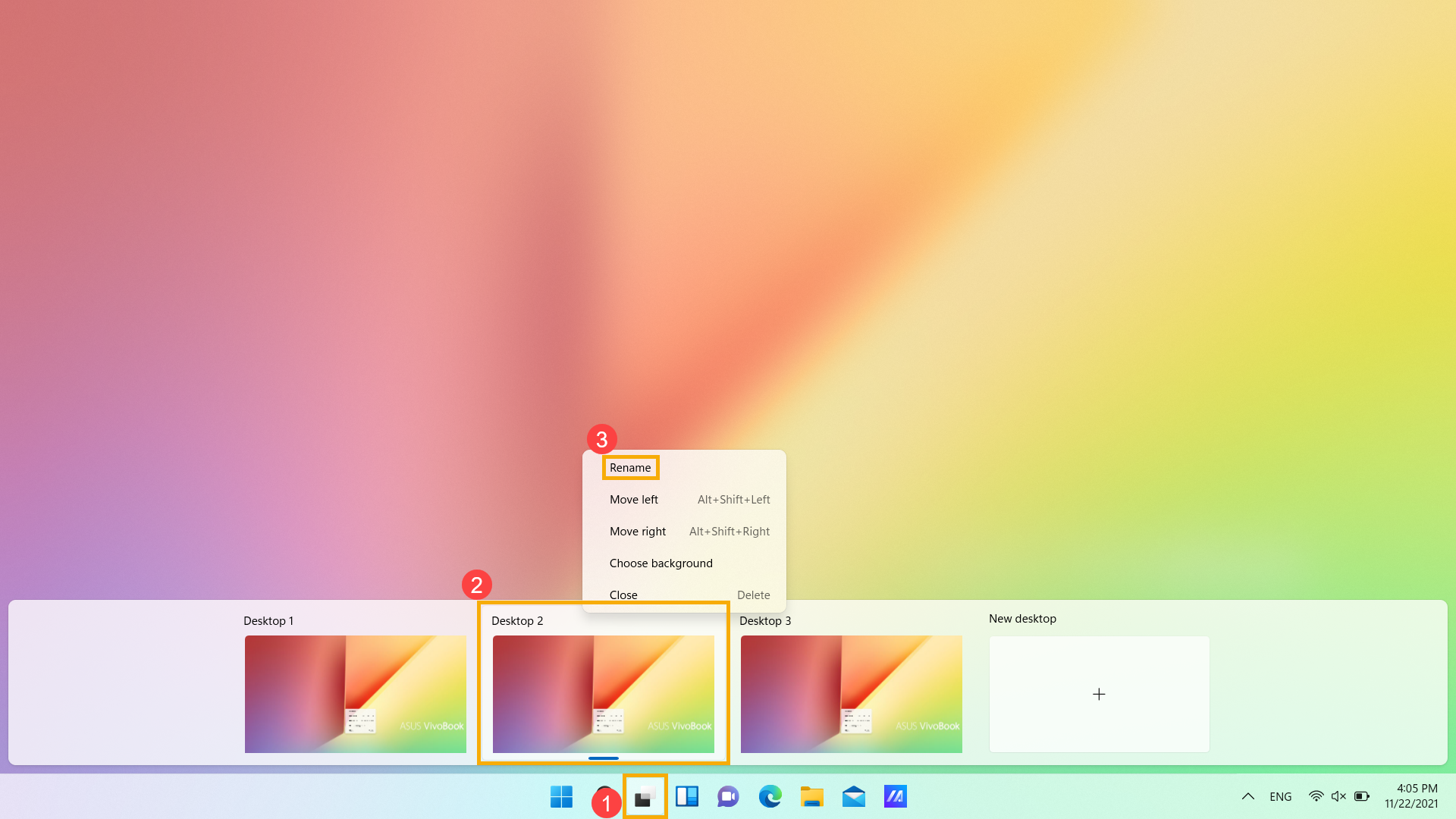
- Type the name you want to use, then press Enter key to change it④.
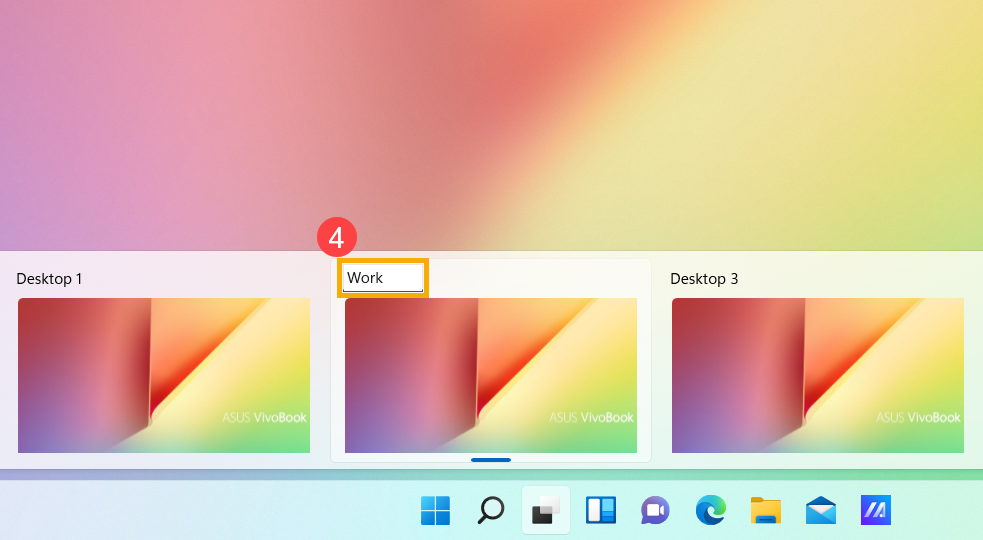
Rearrange
If you would like to change the order of desktops, please select [Task View]①, then right-click on the desktop you want to change② and select [Move left/Move right]③.
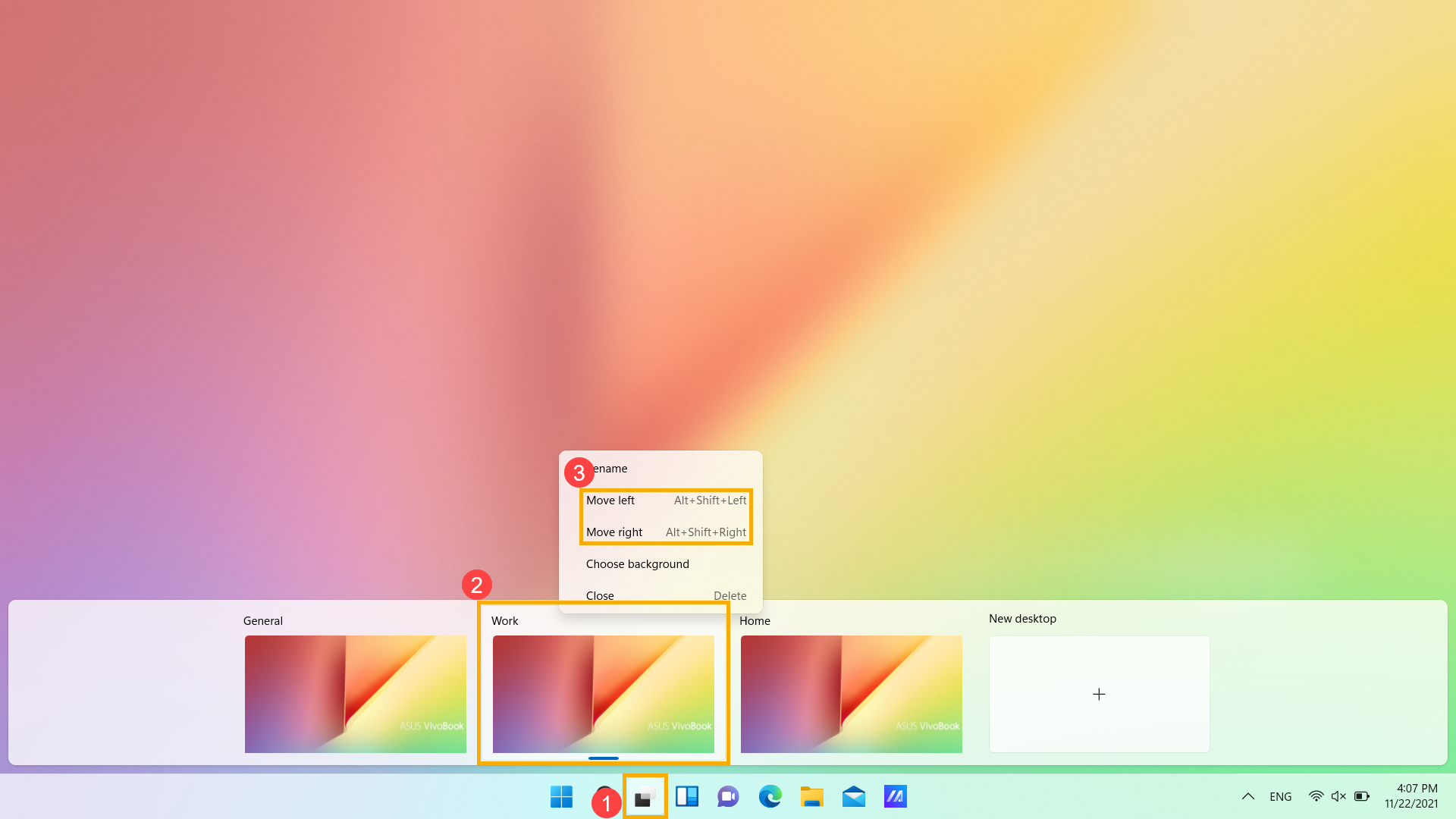
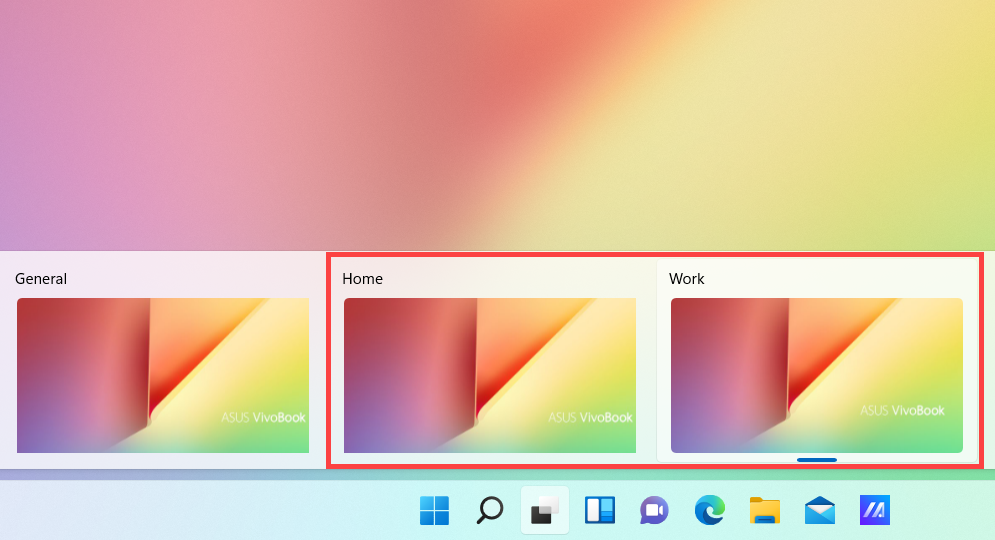
Change the desktop background
You can change the desktop background for each virtual desktop.
- Please select [Task View]①, and right-click on the desktop you want to change②, then select [Choose background]③.
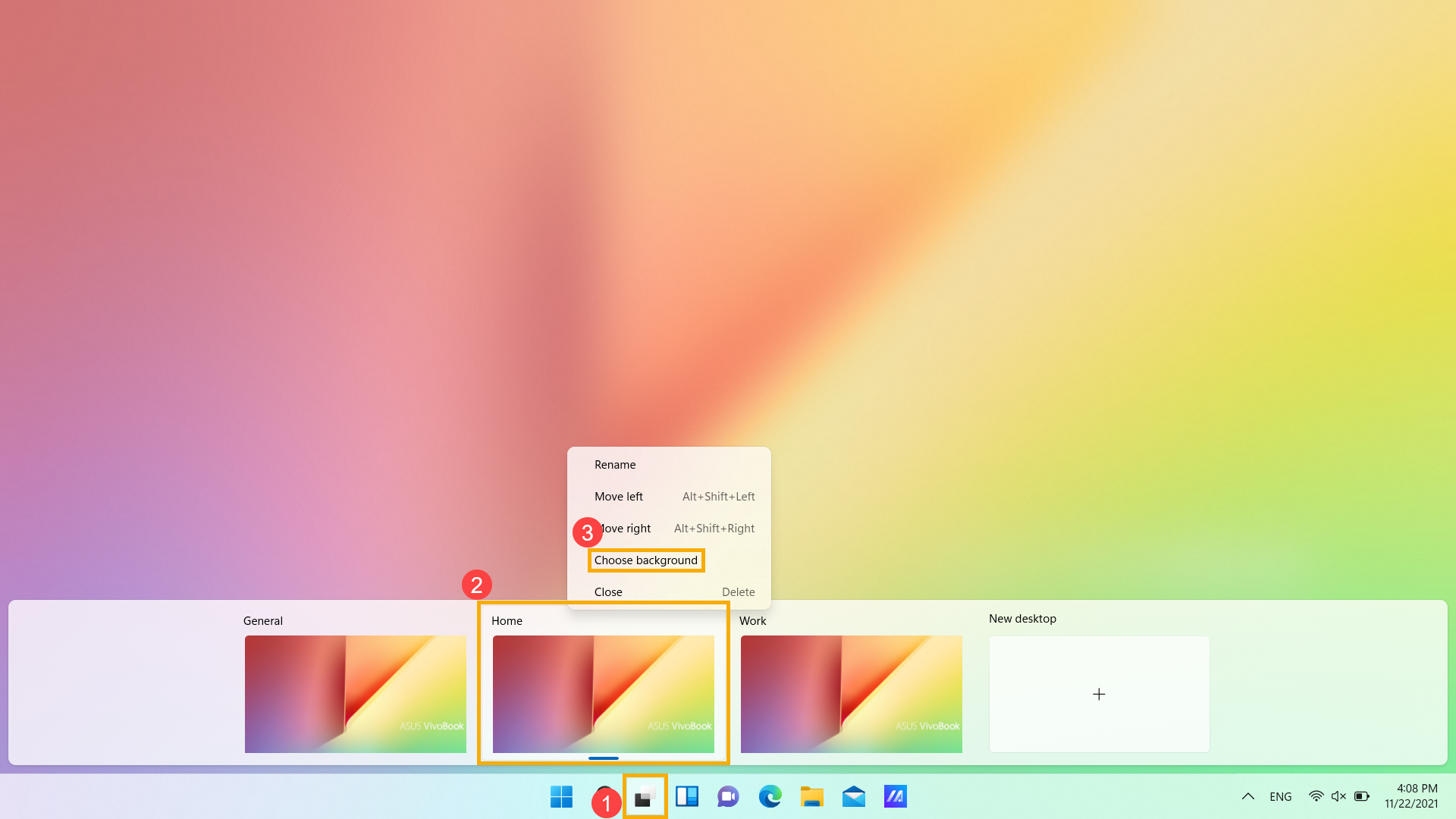
- After Personalization setting show up, you can select a picture, solid color, or create a slideshow of pictures④. You can also select [Browse photos]⑤ to choose other pictures as the desktop background.
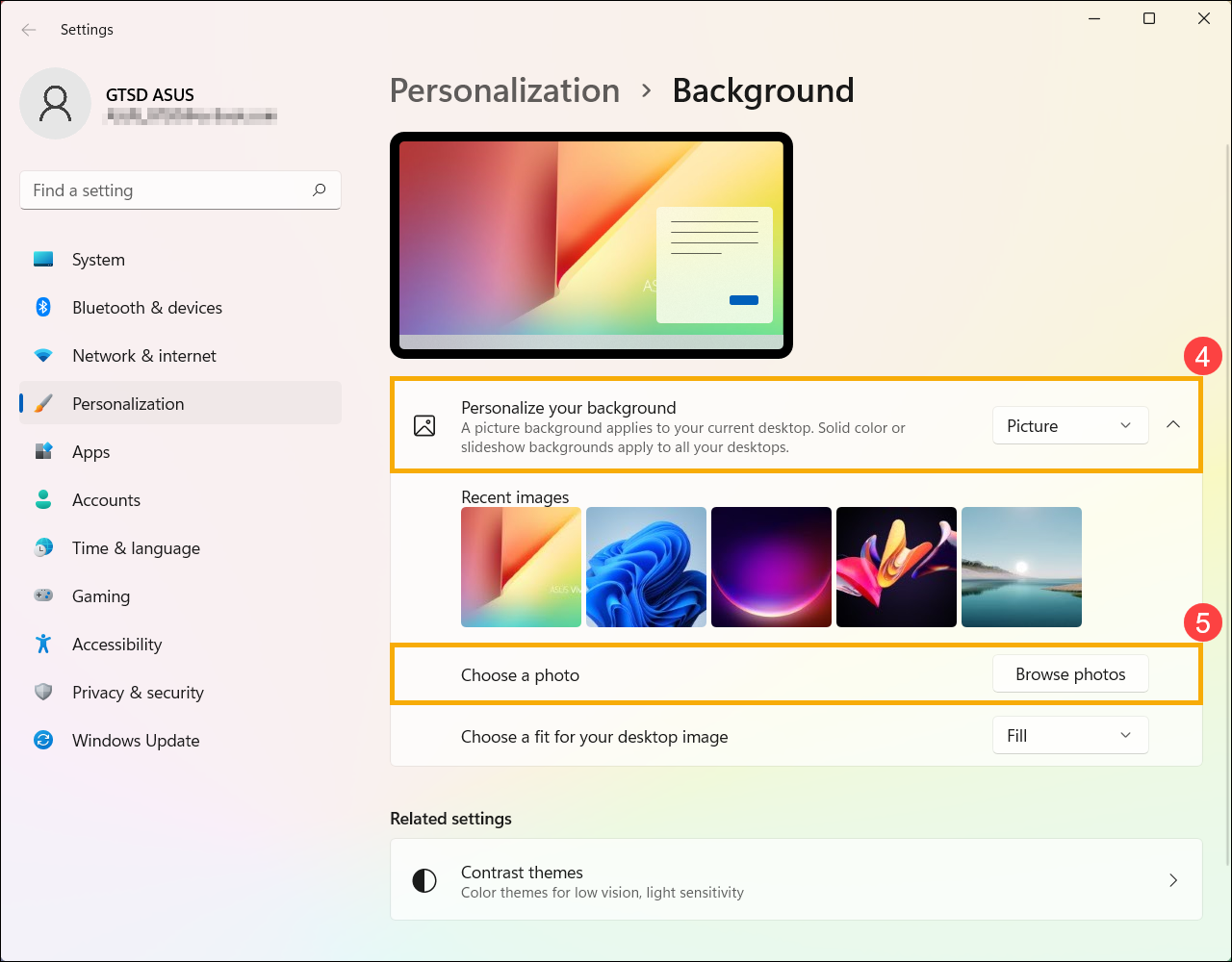
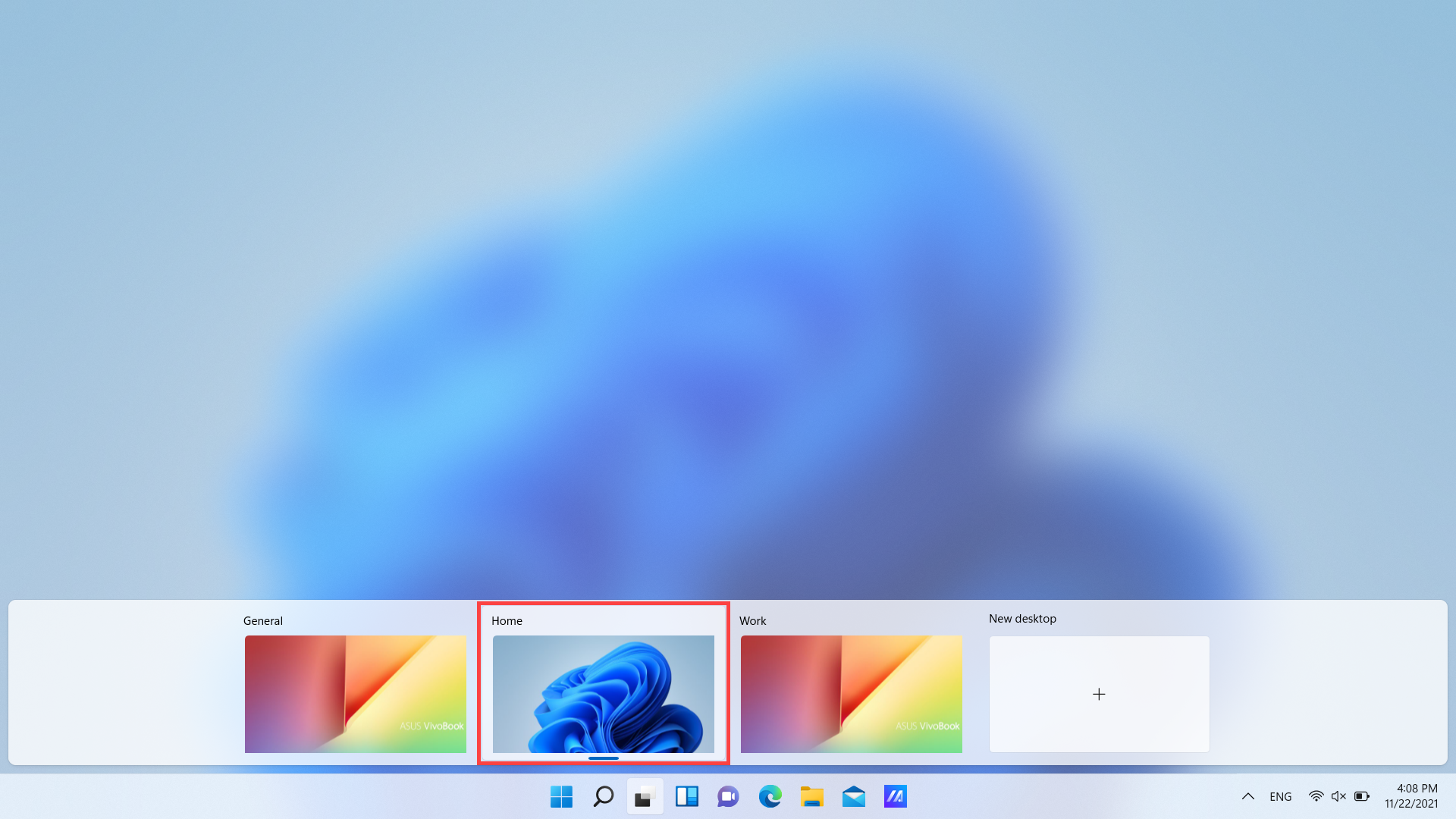
Windows 10 operating system
Table of Contents:
Task View
- You can use the cursor to click the [Task View]
 icon on the taskbar①, or press the Windows logo key
icon on the taskbar①, or press the Windows logo key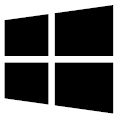 + tab key on the keyboard to run “Task View”.
+ tab key on the keyboard to run “Task View”. 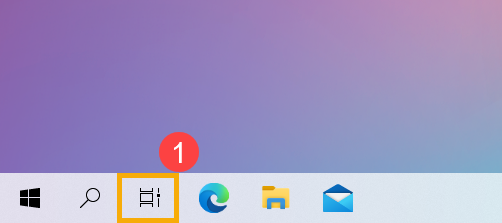
If there is no Task View icon on the taskbar, it might be hidden. You can refer to the following steps to show the Task View icon.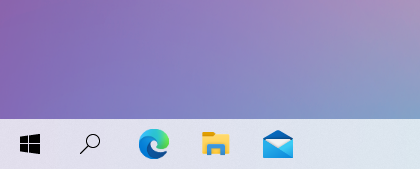
Right-click on the anywhere of taskbar, then select [Show Task View button].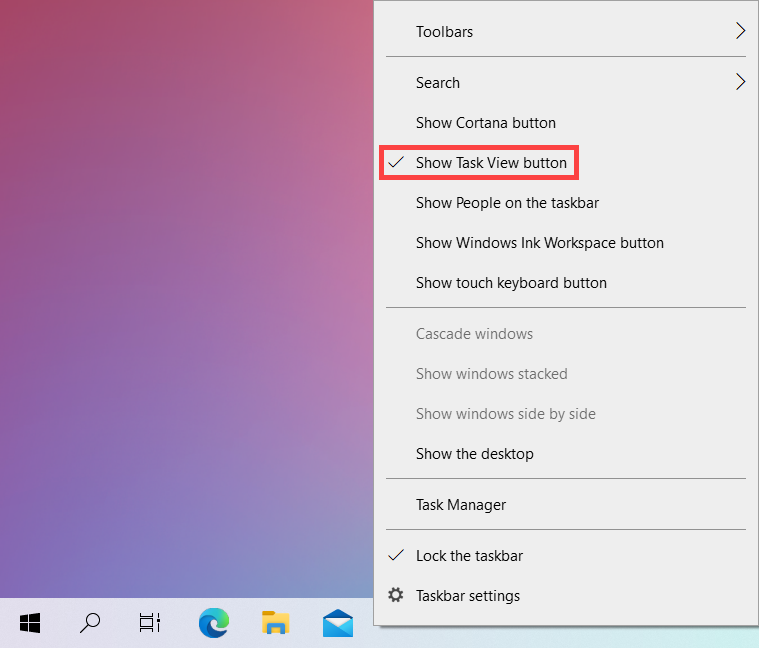
- In Task View, it will list all current windows you are using of the desktop on the top side, and you can select any to quickly open②.
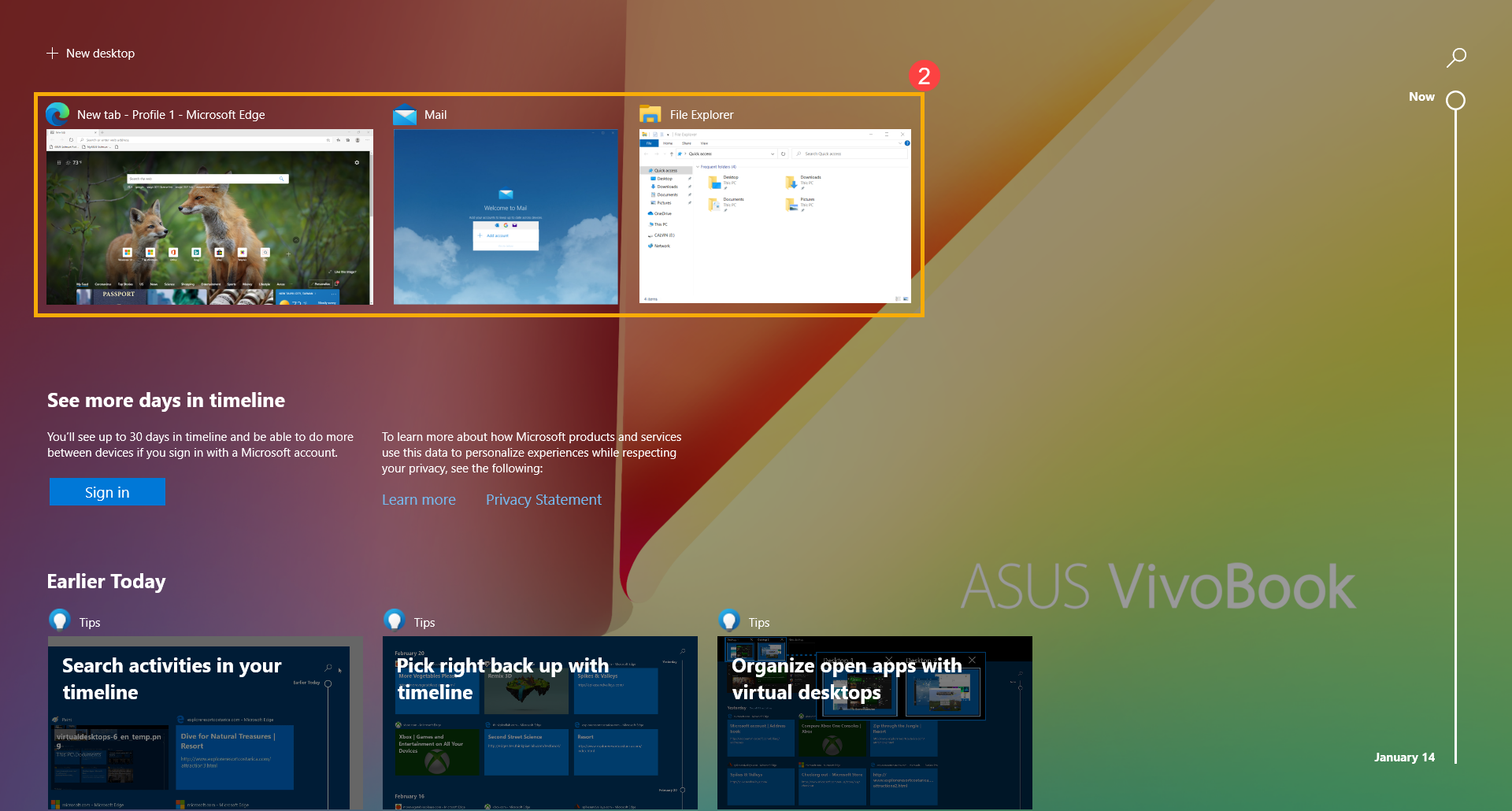
- If you would like to create a new virtual desktop, please select [New desktop]③.
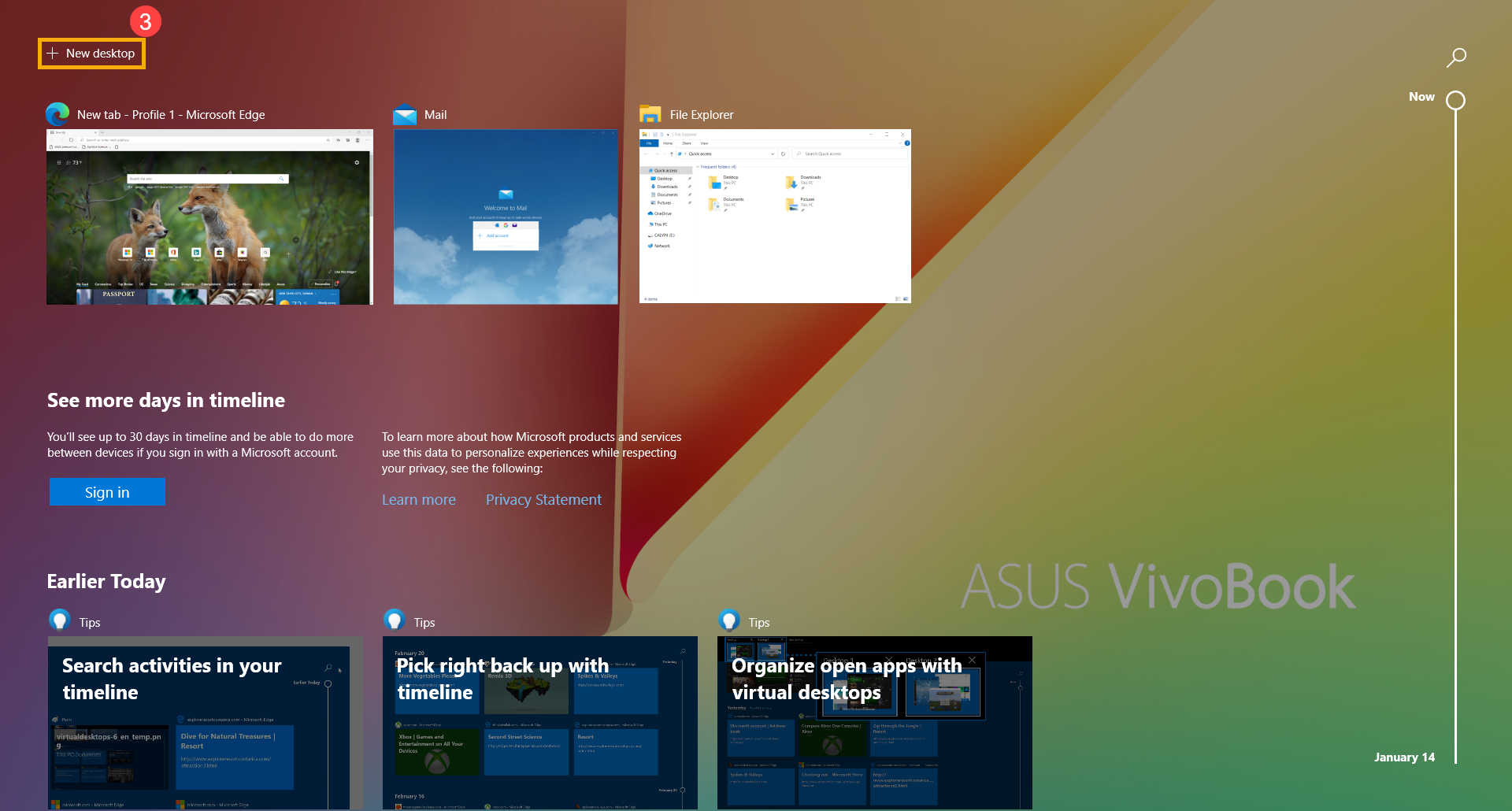
- It will add [Desktop 2] on the top side④. After selecting Desktop 2, you will enter a desktop without any opened windows. So, you are able to open various windows on each desktop depending on different requirements.
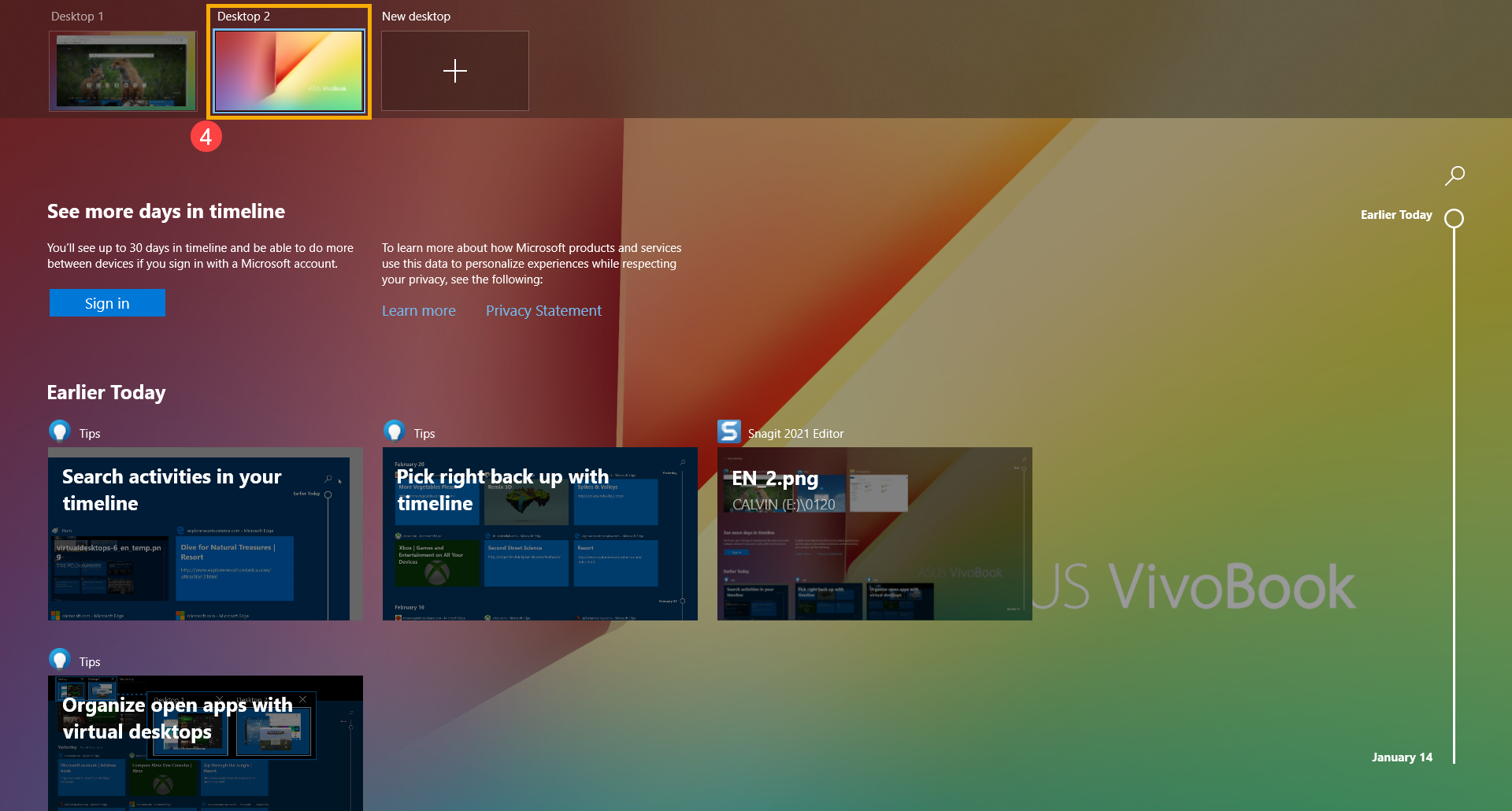
- You also can move the opened windows from the current desktop to another one. Use cursor to press and hold the window, and then drag to another desktop which you want to move to. After the window size becomes smaller, you can release the cursor⑤.
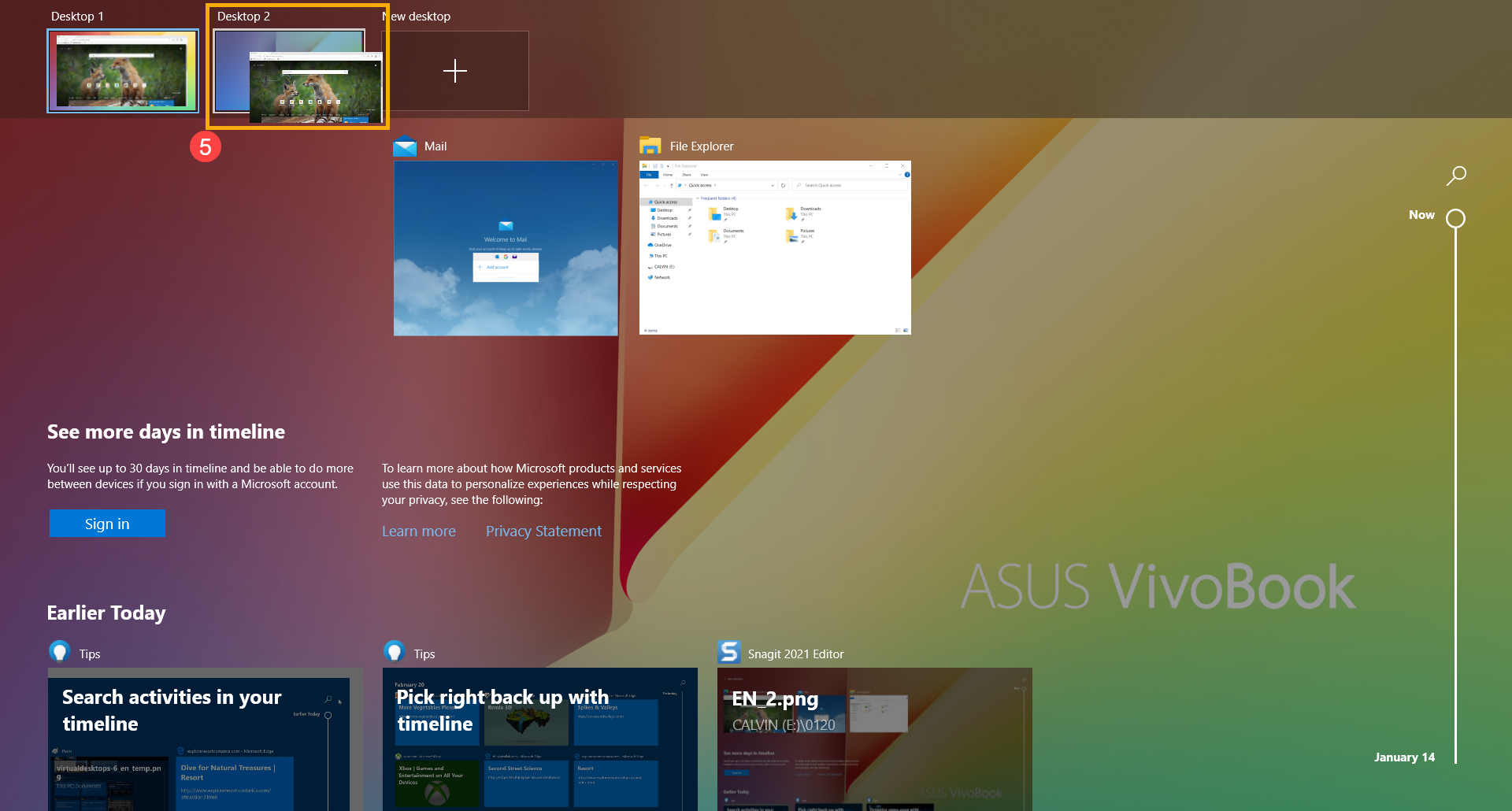
Timeline (Activity history)
The Timeline feature of activity history is enabled by default settings in Windows 10. You can check the recent activities via the Timeline of “Task View”, such as documents, websites, or apps, etc. You also can turn the Timeline feature on via the following steps.
- Type and search [Activity history privacy settings] in the Windows search bar①, then click [Open]②.
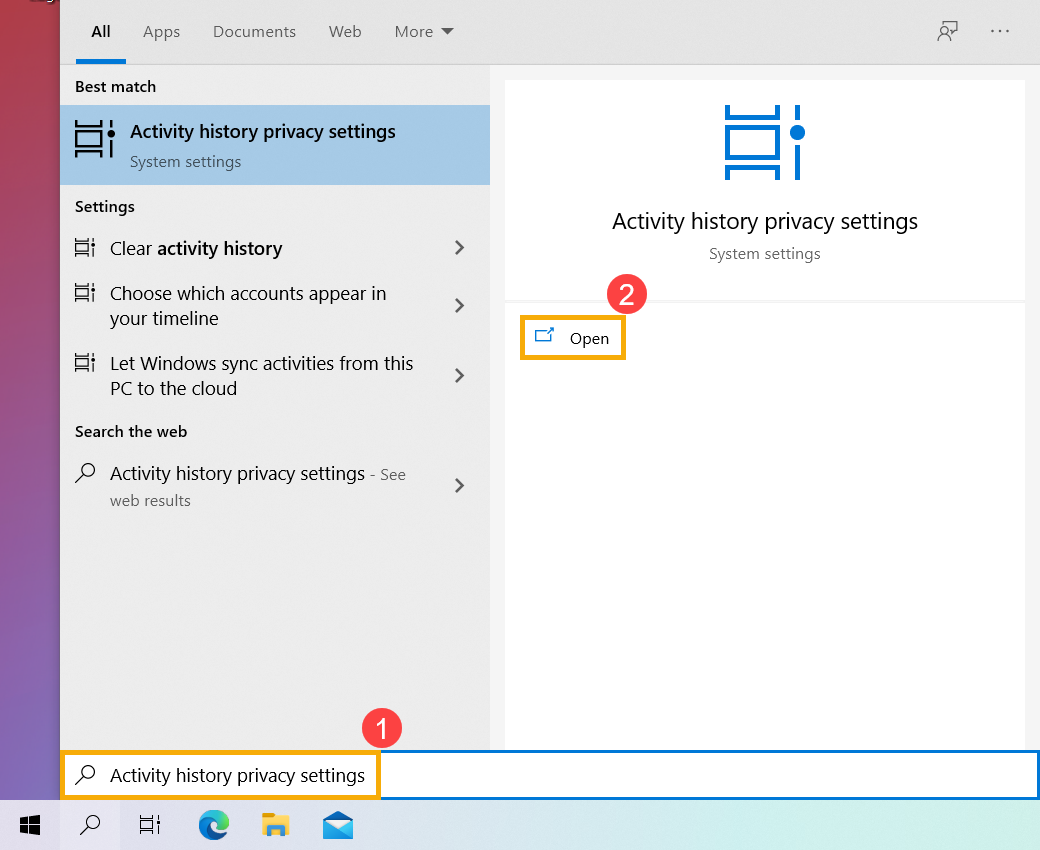
- Check the box to [Store my activity history on this device]③, then the Windows Timeline feature will be enabled in Task View.
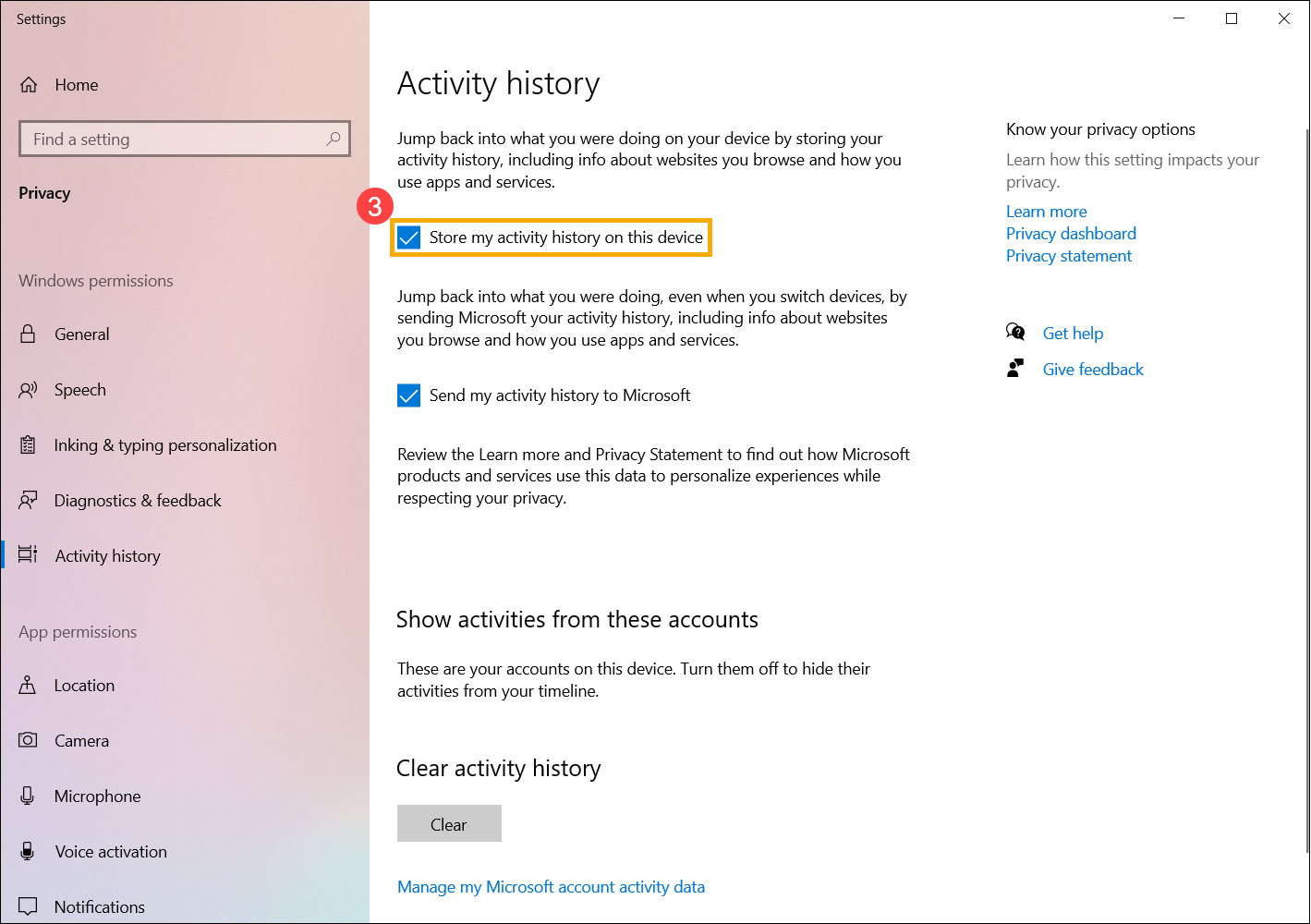
- After opening Task View, it will list your recent activities on the bottom side, and you can select one of the activities to quickly back into what you were doing④.
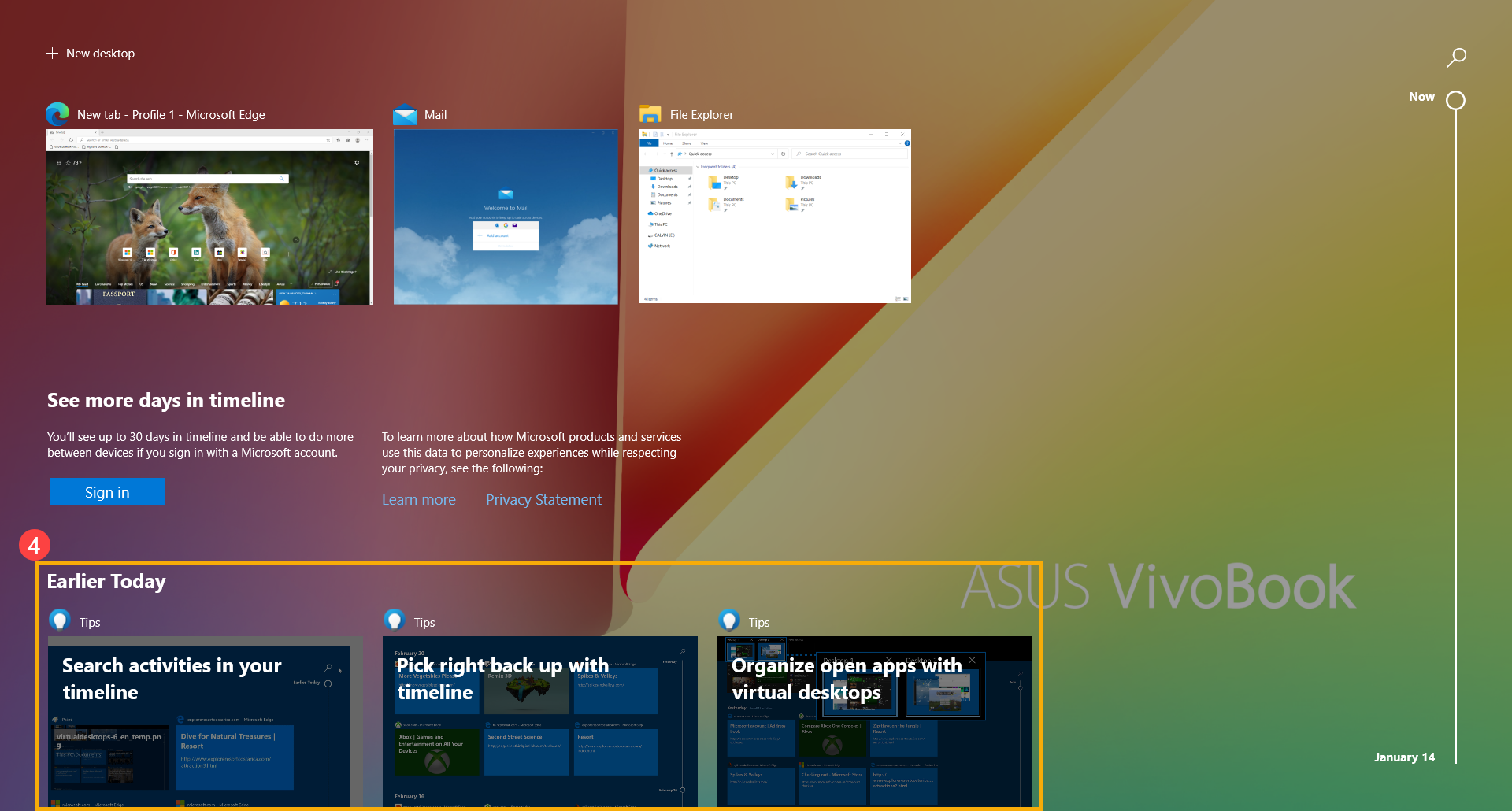
- You also can click [See all activities] at the end of the date⑤, and it will list more activities.
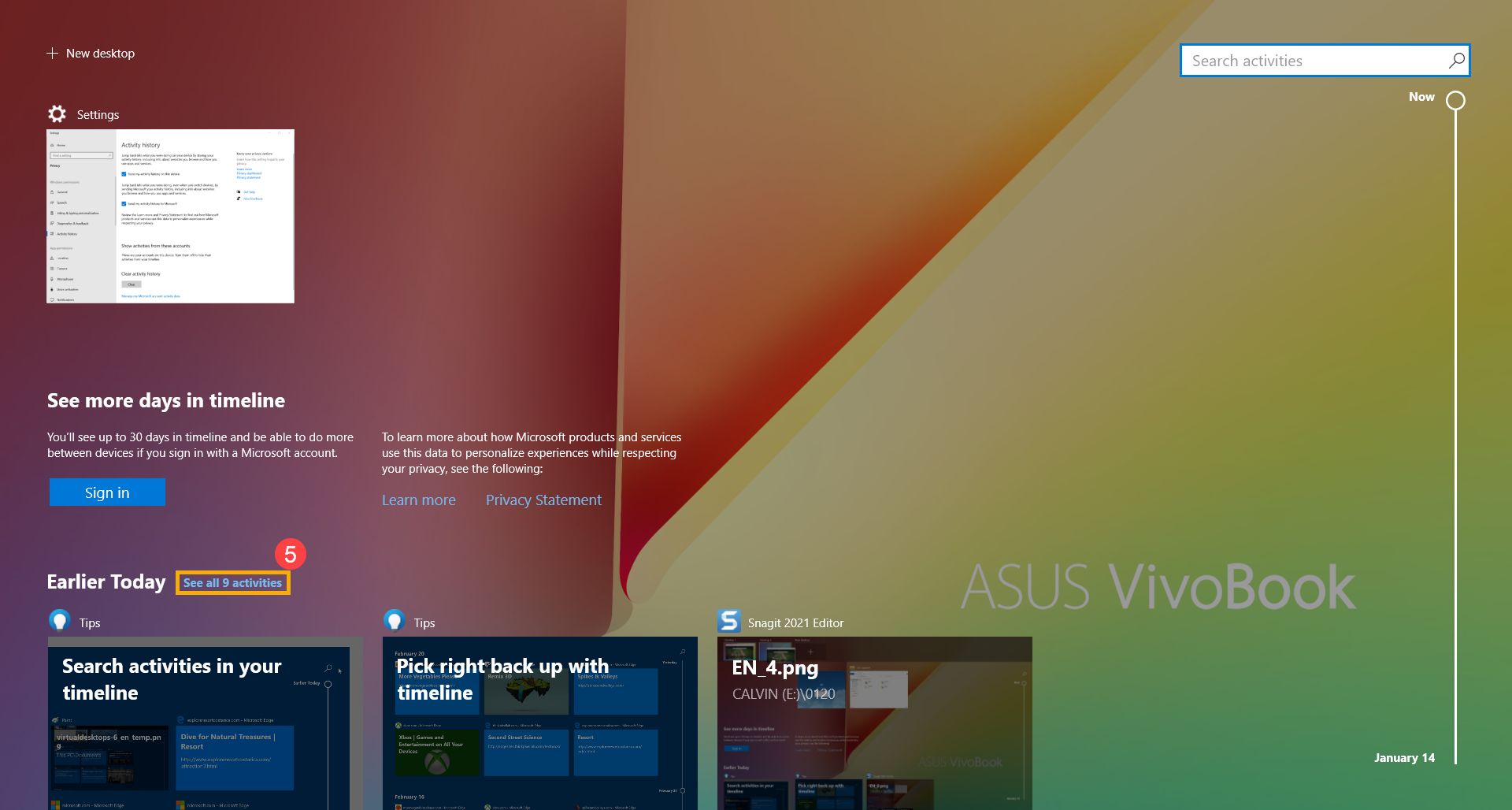
- You also can click [Search activities
 ]⑥ at the upper-right corner, and then type the wording (or a keyword from it) to quickly back into an activity you want to find.
]⑥ at the upper-right corner, and then type the wording (or a keyword from it) to quickly back into an activity you want to find. 